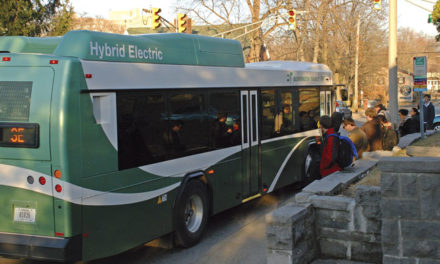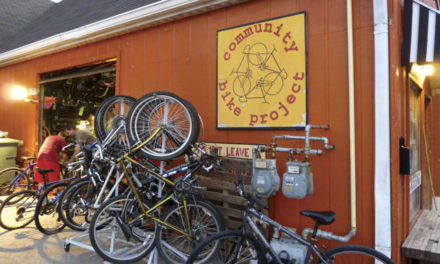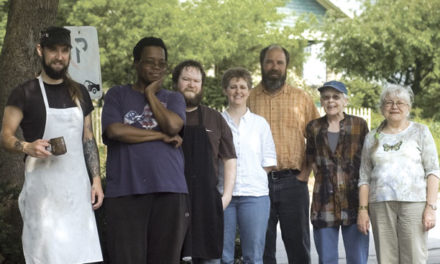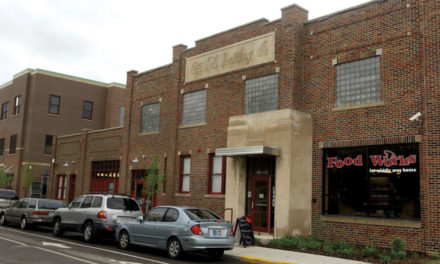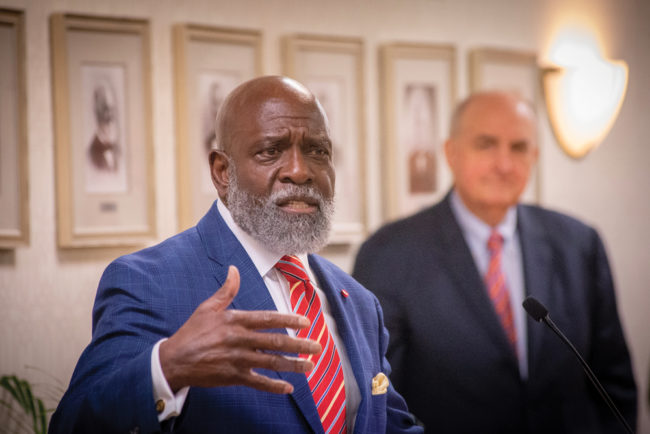
by JULIE GRAY
Charlie Nelms, the first African American chancellor of an Indiana University campus (IU East, in Richmond) and a vice president at IU Bloomington, has been retired and living in Bloomington since 2012. His days aren’t especially retiring, however.
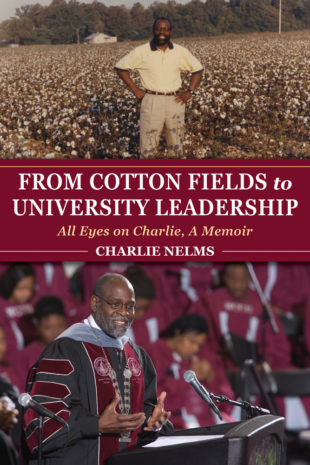
It’s not until he’s read three newspapers and worked out at a gym that he kicks back a little. It’s then that he meets friends at a local café, where, he says, “We have coffee and solve the world’s problems.”
Nelms, 72, spends the rest of the day consulting for clients like the United Negro College Fund, traveling for public appearances, mentoring, and writing. His latest book, From Cotton Fields to University Leadership: All Eyes on Charlie, a memoir, has just been published by Well House Books, an IU Press imprint.
Because Nelms also was the chancellor at the University of Michigan–Flint and of North Carolina Central University, his current schedule still seems light to him. “The nice thing about it is, I’m my own board of trustees,” Nelms says. “I’m my own manager. I’m my own everything. So that’s a good thing.”
He grew up in the “American-style apartheid” of the 1950s and ’60s. His parents and their 11 kids lived in eastern Arkansas, in a house with a leaky tin roof and without electricity or plumbing. They were subsistence farmers whose lives were governed by the cotton-growing season.
“Growing up, I made three decisions,” Nelms says. “One, I was not going to spend my time being angry because that wouldn’t do anything but cause a coronary. Two, I decided I would never treat anyone the way I had been treated. And the third and most important decision I made was that I was going to do everything I possibly could to change it.”
For Nelms, the means to change is education. “Education is the engine of opportunity for historically disenfranchised people,” he says.
Nelms is equally sure of how to make both schools and society more inclusive. “The answer is called ‘pipeline,’” he says. “The talent is there, and we’ve proven that through the athletics model.” Now, he says, the United States must launch an equally pervasive, energetic, and well-funded campaign to identify and nurture talent in other realms.
Anyone who wants to help in such a campaign can find Charlie Nelms at the gym or the coffee shop.


